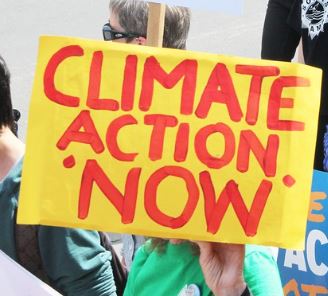Climate Politics- #RegenRegion By Tim Scott
As we approach the Federal Election, Climate Action is probably further up the priority list than it has been ever (although still not at the top!).
What does “Climate Action” mean though? Much focus is on Carbon – but is that just Green Wash? We know that every day we can “Vote with our Dollar” eventually having a say on what businesses do,- but this is slow. Every few years we get to speed up change by influencing policy with a Vote at the ballet box.
Things actually have to change drastically either in the way we produce goods, or a payment for emissions or pollution offsets is necessary. Carbon offset ‘schemes’ are a “painless” form of Climate Action favored by many big businesses.
Back to the “nuts and bolts” of climate variability though. We have long touted at Kandanga Farm Store that there are far greater contributors to extremes in climate than CO2. Higher humus levels in soil of course has water holding capacity benefits, which means more microbes cycling nutrients and healthier systems; but 70% of projects under the methodologies currently employed in generating Carbon Credits in our state aren’t in the soil.
The “small water cycle” that allows green plants to stabilise temperature and humidity by the actions of photosynthesis and transpiration is what makes a rainforest stable, moist and cool. Mowing, burning, sealing, spraying or tilling soil and removing vegetation layers (trees, bushes, forbes and different height grasses) we’ve found will result in a 40 degree DIFFERENCE in daytime temperature compared to adjacent areas of multi-layered in-tact green leaf cover.
To be clear- on an average 32-degree Summer day, in a green shaded area, ground temperature will be below 22 degrees. On bare ground adjacent, it can exceed 65 degrees. Mowed grass; somewhere in the middle. The same at night with bare earth being cold and dry because without plants, the insulation “blanket” isn’t present.
Now think of this on a macro scale over thousands of square kilometers. This heat and cool caused by artificial desertification is what intensifies weather events, kills soil life and lessens the number of harvests our children will have to sustain life later this century- maybe not Carbon Dioxide!
In the regulated market an Australian Carbon Credit Unit (ACCU) is the way of measuring (and trading) a carbon surplus or offsetting a deficit. An ACCU represents 1t of CO2e (equivalent) or 3.67t of Carbon. Other GHG (eg Methane) have an equivalence back to the CO2e (methane is 25X). Many argue that no more carbon is being sequestered under most allowable methodologies (*), it’s simply now being measured and traded with no net effect on Climate. That’s one valid argument.
Further muddying the waters, most forms of carbon sequestration are not permanent. Carbon in trees is eventually released as they die and rot and carbon sequestered in soil by the actions of roots and the microorganisms that process humus can be released if management reverts to poor practices and/or from seasonal drought. In fact soil carbon projects (with only one exception) are yet to show that ACCU’s can be created at all in soil. The production of Biochar is arguably the only shining light for long term carbon sequestration and has been the focus of our Farm Store for many years.
Regardless of the downsides, Carbon is what businesses and politicians focus on- because it’s simple and relatively painless. Oh, I almost forgot, AND THERES MONEY TO MAKE! This “green” market is already worth in excess of 3 trillion US Dollars; 4 times larger than the international Beef Industry (as a comparison). Better still, the market is under-subscribed by up to 85%!
Opportunities abound for anyone who manages land holdings. From a straight business perspective, if you are a landholder with the capacity to create Carbon Credits (everyone) and haven’t looked at this, you really need to.
As a voter, business owner, farmer, panelist in MLA’s Biodiversity working group and advisor under the Land Restoration Fund; it seems obvious to me that Carbon accounting will sooner or later be the next GST. Emissions’ costs will be calculated into every product and passed down the line. My hope is that new, smarter ways of addressing Climate volatility will also be discussed in this election cycle to include other (arguably more important) contributors to planetary degradation than just Carbon Dioxide (***).
Regardless, the voluntary market for Carbon could eclipse the regulated system very quickly as single companies like Microsoft look to offset their emissions (equating currently to the entire world supply of regulated Carbon Credits). For Regenerative farmers, Natural Capital management opportunities already extend far beyond staple commodity production. We now hold many of the solutions for a world hungry for Climate Action in our hands and our Politicians need to know it.

* http://www.cleanenergyregulator.gov.au/ERF/Pages/Method-development.aspx
